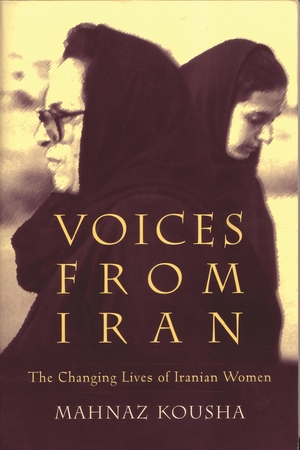"No other book analyzes the economic role of Iranian women as comprehensively and empirically as this book. . . . It advances an understanding of the gender implications of development policies."—Eric Hooglund, author of Twenty Years of Islamic Revolution: Political and Social Transition in Iran since 1979
"The authors draw attention to the ways in which women’s lives have been transformed, highlighting the impact of national and international forces rather than focusing solely on religion."—Mahnaz Kousha, author of Voices from Iran: The Changing Lives of Iranian Women
Description
The popularity of neoliberal economic policies is based, in part, on the argument that the liberalization of markets promotes growth and increases employment opportunities for women. Although the latest research bears this out, it also presents a grim portrait of the state of women’s employment. Approximately 70 percent of those living on less than a dollar a day are women or girls.
In Veiled Employment, the contributors examine these stark disparities, focusing on the evolving role of women’s employment in Iran. Based on empirical field research in Iran, their essays document the accelerating trend in the size and diversity of women’s employment since the 1990s and explore the impact of various governmental policies on women. The volume analyzes such issues as the effect of global trade on female employment, women’s contributions to the informal work sector, and Iranian female migrant workers in the United States. Rejecting the commonly held view that centers on Islam as the primary cause of women’s status in the Muslim world, the authors emphasize the role of national and international political economies. Drawing on postcolonial feminist theory, they reveal the ways in which women in Iran have resisted and challenged Islamism, revealing them as agents of social transformation rather than as victims of religious fundamentalism.
About the Author
Roksana Bahramitash Research Director for the Canada Research Chair of Islam, Pluralism, and Globalization at the University of Montreal. She is the author of Liberation from Liberalization: Gender and Globalization in Southeast Asia.
Hadi Salehi Esfahani is professor of economics and director of the Center for South Asian and Middle Eastern Studies at the University of Illinois at Urbana-Champaign. His articles have appeared in such periodicals as the Economic Journal, Review of Economics and Statistics, Journal of Development Economics, and Oxford Economic Review.
April 2011




